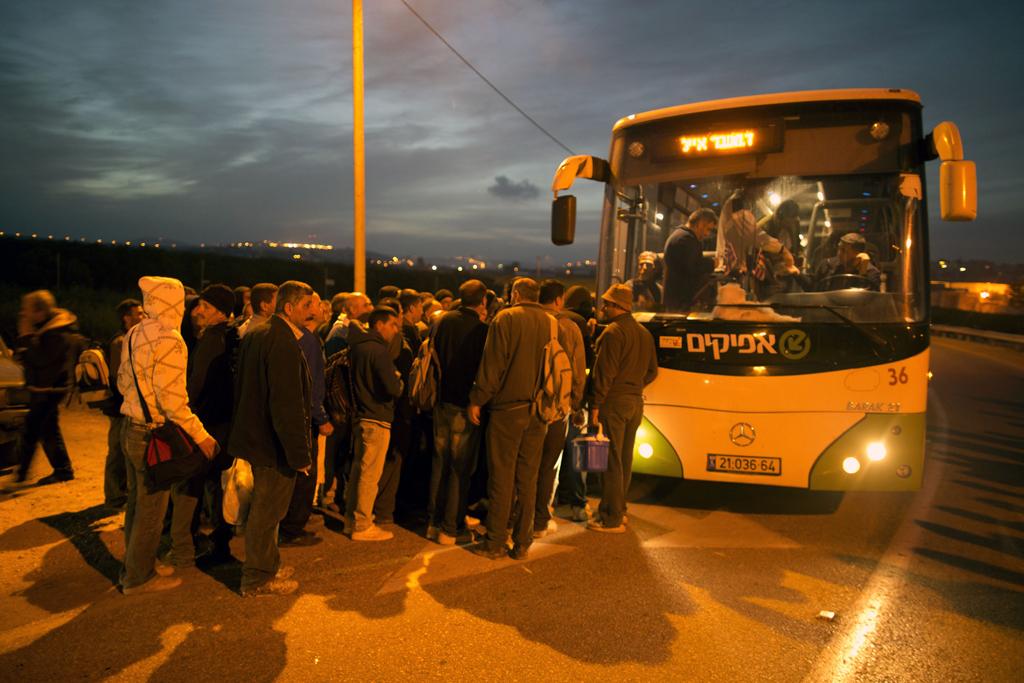Israel: Palestinian-only buses invoke specter of apartheid
Palestinians queue to board a bus as a new line is made available by Israel to take Palestinian laborers from the Israeli army crossing Eyal, near the West Bank town of Qalqilya, into the Israeli city Tel Aviv, on March 4, 2013. Thousands of Palestinians enter Israel to work every day after receiving permits, many of them in private vans. The new line will not be available for Jewish settlers.
The Afikim bus company began running separate bus lines for Palestinians from the West Bank into Israel on Monday.
The Daily Telegraph headline on the subject said: "Palestinian-only buses: Israeli apartheid?"
Left-leaning Israeli newspaper Haaretz said, "Transportation Ministry officials are not officially calling them segregated buses, but rather bus lines intended to relieve the distress of the Palestinian workers."
The Wall Street Journal noted Israel media's rare attention to the matter: "'Separate but equal?' asked Israel's centrist daily Yediot Ahranot newspaper on Monday. 'On the bus to Israeli apartheid,' read an editorial headline in the left-of-center Haaretz newspaper."
The separate bus lines were launched in response to Jewish settlers complaining that Palestinians on the same buses as them posed a security risk.
"Creating separate bus lines for Israeli Jews and Palestinians is a revolting plan," Jessica Montell, director of the B'Tselem rights group, said on Army Radio. "This is simply racism. Such a plan cannot be justified with claims of security needs or overcrowding."
However, Israel's Minister of Transportation Yisrael Katz, a conservative in Prime Minister Benjamin Netanyahu's Likud party, said both Israeli Jews and Palestinians can still ride on any bus line.
"Adding new bus lines servicing Palestinian areas is not segregation," said a spokesman for Katz, according to The Journal. "Anyone can ride on any bus. There are now just more buses."
Rights groups have voiced concern that Israeli police could force Palestinians to ride their designated bus lines, while Palestinian workers who use the bus lines have reacted positively to the new arrangement, the Associated Press noted.
Nearly 40,000 Palestinians are allowed to work in Israel each day, and some said sharing buses with settlers had become so unpleasant that they preferred having their own buses.
Every day, reporters and producers at The World are hard at work bringing you human-centered news from across the globe. But we can’t do it without you. We need your support to ensure we can continue this work for another year.
Make a gift today, and you’ll help us unlock a matching gift of $67,000!
